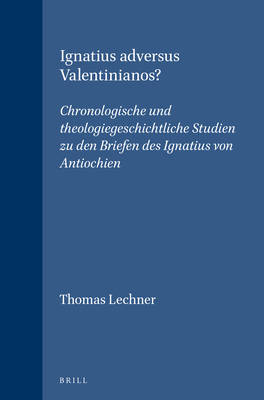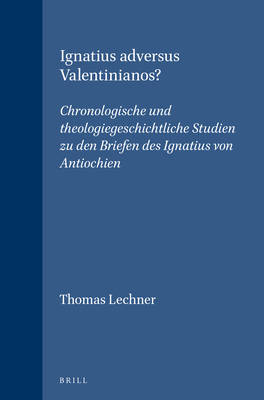
- Afhalen na 1 uur in een winkel met voorraad
- Gratis thuislevering in België vanaf € 30
- Ruim aanbod met 7 miljoen producten
- Afhalen na 1 uur in een winkel met voorraad
- Gratis thuislevering in België vanaf € 30
- Ruim aanbod met 7 miljoen producten
Zoeken
Ignatius Adversus Valentinianos?
Chronologische Und Theologiegeschichtliche Studien Zu Den Briefen Des Ignatius Von Antiochien
Thomas Lechner
€ 392,45
+ 784 punten
Omschrijving
This volume discusses the authenticity of the seven letters, handed down under the name of Ignatius of Antioch, and explores the wider theological context at the time of their composition. The author first examines the chronological foundations of current scholarly consensus, which on the whole favours an early second-century date for the composition of these letters, during the reign of the emperor Trajan (98-117). On the basis of his findings the author next addresses the question raised by the title of the volume: do some of the polemic passages in these letters specifically attack Valentinian gnosis? After a detailed discussion of chapters 16-20 of the Letter to the Ephesians it is shown that the Ignatian Star Hymn (Eph. 19) should be seen as a parody of Valentinian myth. The volume concludes with a study of the Regula fidei (Eph. 18,2).
Specificaties
Betrokkenen
- Auteur(s):
- Uitgeverij:
Inhoud
- Aantal bladzijden:
- 400
- Taal:
- Duits
- Reeks:
- Reeksnummer:
- nr. 47
Eigenschappen
- Productcode (EAN):
- 9789004115057
- Verschijningsdatum:
- 22/10/1999
- Uitvoering:
- Hardcover
- Formaat:
- Genaaid
- Afmetingen:
- 164 mm x 245 mm
- Gewicht:
- 857 g

Alleen bij Standaard Boekhandel
+ 784 punten op je klantenkaart van Standaard Boekhandel
Beoordelingen
We publiceren alleen reviews die voldoen aan de voorwaarden voor reviews. Bekijk onze voorwaarden voor reviews.











